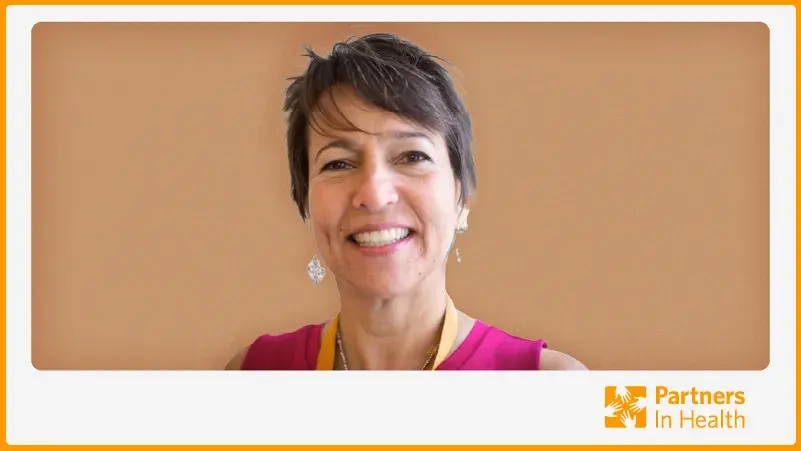Joia Mukherjee: "Between Sorrow and Joy"

Dr. Joia Mukherjee, PIH's chief medical officer, wrote this reflection following the death of Dr. Paul Farmer.
There is a dialectic between sorrow and joy. And in that space between the two, love lives. That is what I learned from my years working with Paul and Partners In Health.
Paul was so many things—a dad and husband, a son and brother, a physician and scholar, a friend. Everyone who knew Paul, knew how he lived in this space between sorrow and joy. For when we truly feel the pain of others—in our chest, in our bones—it is because we love; because our connection is rooted in the undeniable humanity of one another. And love brings joy. It connects us as fellows, friends, and family. Doing the difficult work of healing the sick against the nefarious forces of injustice can be grinding and sad. It can lead to despair. Yet, the work of PIH is buoyed by the lightness that emanated from Paul. Light that we will forever float upon.
Paul was so funny—effervescent in his joy, his humor, and his downright silliness. The absurdity of the world was his constant entertainment. We joked about what type of microbes one might find in a hippo bite (we settled on Aeromonas). On my fridge in a magnetic sleeve is a cartoon Paul drew after a long week of treating children suffering from malnutrition. I can’t share the joke, because it was a definite “had to be there” moment; but his humor always provided the release that we needed. Sorrow and joy.
Paul cried a lot. Frequently, shedding tears of joy when his children, family, students, friends, or colleagues accomplished something. I used to send him texts saying #crybaby when our Master's students were defending their theses.
Yet, his tears were often provoked by sorrow—when a patient died, when a tragedy occurred, or when he witnessed the seemingly unchanging violence that caused the suffering of the poor. He counted on all of us—his thousands of best friends—to comfort him, to be with him, to sit an endless vigil to the sick, the wounded, and the dead. He planted his garden, I believe, to soothe his own suffering at the ugliness of the world.
Barriers, boundaries—the ones taught to us in medical school—were not Paul’s thing. He led us away from such hogwash. Proximity to people—patients, staff, students, and friends—is where he rejoiced. He taught us that love is infinite and the only path to lasting change. He taught us that sorrow and joy could, and indeed must, co-exist in a world that was unjust. Oh, and he wrote everything down so we wouldn’t ever forget #paulspromise.